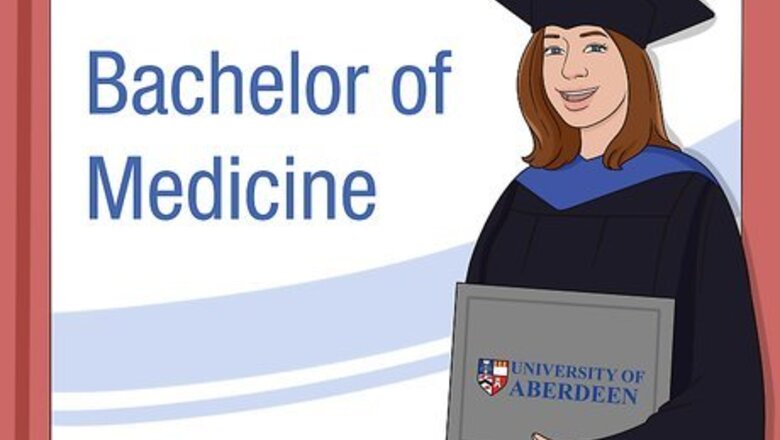
views
What qualifications do you need to become a doctor in the UK?
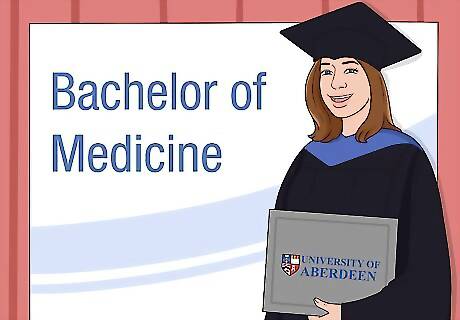
Earn a degree in medicine from a recognized school in the UK. The General Medical Council (GMC) is responsible for regulating and licensing doctors in the UK. The first step in becoming a licensed medical doctor is to receive an undergraduate degree from a school that the GMC recognizes. It can take 4-6 years and you’ll learn basic medical sciences as well as take part in some clinical training to prepare you for your future medical training. You can also take a 4-year graduate-entry medical program from a recognized school, which is a great option if you completed your undergraduate degree studying something other than medicine.

Complete a 2-year foundation course. After you graduate from medical school, you’ll take a 2-year foundation course where you’ll learn more about medical sciences and practices. As part of the foundation course, you’ll also be granted a license to practice medicine as part of the program. Every medical student must complete the 2-year foundation course after they graduate medical school.
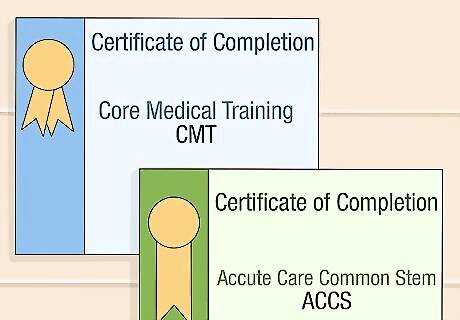
Finish your core training and specialist training. Core medical training (CMT) involves spending 2 years rotations in different medical specialties to gain experience. You can also choose to pursue 3 years of Acute Care Common Stem (ACCS) which involves emergency medical and intensive care training, among other focuses. Once you wrap that up, you can spend between 4-7 years of specialist training for your chosen focus, such as cardiology or oncology (cancer).
How do you get into medical school in the UK?
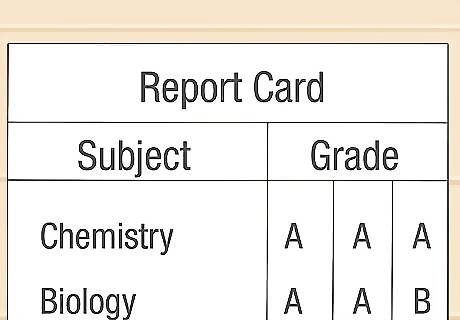
Earn good A Level grades in Sciences. The Advanced Level qualifications are one of the most important factors behind getting into medical school. Most schools ask for an AAA or AAB at A Level, especially in the Sciences such as Chemistry and Biology. Once you complete your A Level, you can use it as part of your application to medical school. Generally, you’ll spend 2 years studying and preparing for your A Level so you can do well on it. Nearly every UK university uses A Levels to assess a student’s eligibility for an undergraduate degree course.

Pass an admissions test and interview with the university. As part of your application to a medical degree program at a UK university, you’ll sit down with representatives of the school for a formal, professional interview. You’ll also take an exam given by the university to help determine whether or not you qualify for entry. The interviewers will likely ask things about your work or medical experience and your motivations for wanting to become a doctor. Generally, the entry exams will focus on sciences such as biology and chemistry alongside more general testing of your thinking and writing skills.
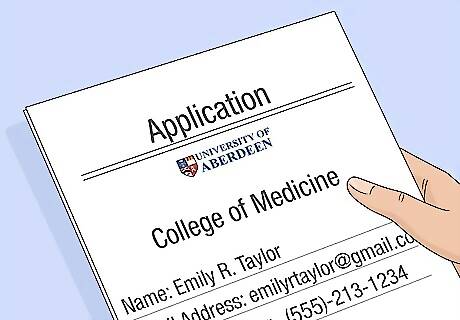
Submit your application on time. While some other subjects and universities may be more flexible as you work to complete your application, medical schools will not. They’ll likely make you wait another year if you haven’t submitted everything on time. Write an excellent personal statement, complete your interview, take the entry exam, and provide details of any relevant experience such as working in a hospital or attending medical events. Usually, you’ll submit your application by October to most universities in the UK. You’ll also have references that need to be submitted on time as well.




















Comments
0 comment